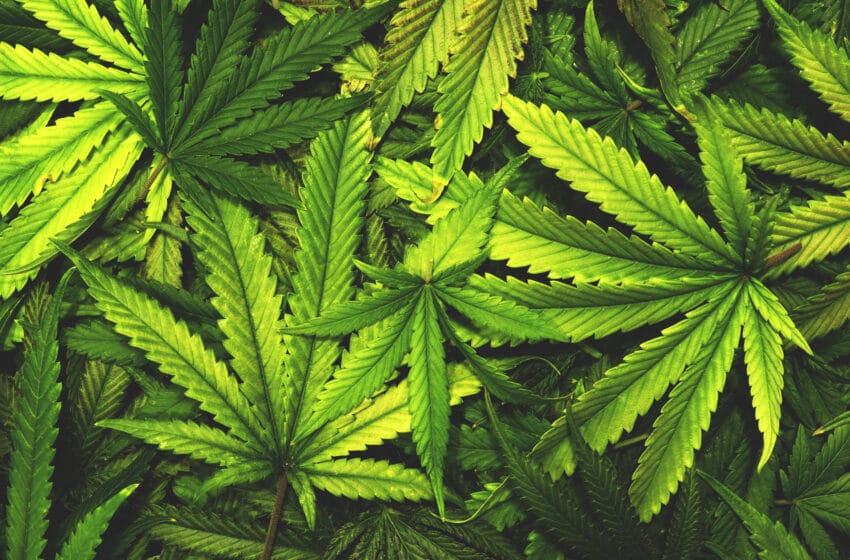Is Marijuana Reform Coming to Texas?

The Changing Landscape of Cannabis Laws in Texas
Cannabis laws are changing quickly around the country, including in Texas. Hemp—cannabis with less than 0.3 percent THC—is now legal nationwide. (THC, the psychoactive element of cannabis, is one of more than 100 cannabinoids within the plant. CBD is another dominant cannabinoid, but it doesn’t have a euphoric affect.)
Thirty-six states allow safe and legal access to medical cannabis, defying federal law, and fifteen of those states have also legalized consumption for responsible adult use. With pressure mounting, Congress is closer than ever to repealing cannabis prohibition.
Legalization advocates in Texas have looked to the 2021 legislative session for hope of state-level reform as well. Before the session, several pro-legalization bills were filed. Even if this doesn’t turn out to be a year of big changes for cannabis in Texas, it’s useful to understand where we are right now—and how full legalization could offer tremendous benefits, not only for marijuana consumers but for the state’s overall economy.
Hemp: Fully legal in Texas
Since 2014, when Congress created a pilot program to explore hemp farming, hemp products have grown in popularity. For one, Americans seem to have jumped headfirst into the CBD market. Hemp legalization was confirmed by Congress in 2018, when hemp was defined as cannabis with trace amounts of THC (<0.3 percent) and removed from the list of controlled substances. Subsequently, the Texas Department of Agriculture licensed hundreds of hemp farmers in 2019, and with seven micro-climates in the state, some farmers could produce high-yield crops year-round.
This emerging market includes cultivation, processing/manufacturing, and retail sales of hemp for cannabinoids, hemp seeds and grain, and fiber from the plant’s stock.
Not only do consumers seem to love CBD oil, but hemp’s versatility creates tremendous opportunity within multiple industries, including textiles, bioplastics, fuel, and even building materials. Regulators have so far been reasonable and surprisingly receptive to input from stakeholders, including business owners, attorneys, and consumers.
Smokable hemp: Still in limbo
However, one ongoing challenge comes with the state’s handling of “smokable hemp products.” According to the law, in-state manufacturing of hemp products intended for smoking (or vaping) is prohibited.
The Texas Department of State Health Services is tasked with regulating consumable hemp products, and while establishing rules for retail sales, the department seems to have overstepped its authority, banning the in-state sales of these smokable products. A temporary injunction has been granted, keeping the state from enforcing this rule. A definitive determination will soon be made by the courts. Until then, any and all hemp products can be sold in Texas.
Medical cannabis: Legal . . . ish
Despite the current progress on hemp, Texas is woefully behind most of the country when it comes to medical cannabis. Established in 2015 and expanded in 2019, the Texas Compassionate Use Program (T.CUP) allows only limited access to low-potency (<0.5 percent THC) cannabis. While an estimated two million people qualify for the program, fewer than 3,000 have registered after five years according to the Department of Public Safety. Low registration numbers are to be expected for such a newly established program, but there are a couple of other reasons so few patients chose to participate.
First, T.CUP offers medicine that is only marginally better than hemp products, and the latter can be purchased over the counter or online at lower costs. Patients also are required to seek out a specialist who’s registered with the program and accepting new clients in order to gain access.
Many patients are also concerned about the implications of being a registered user of a federally illegal substance. Under current law, a patient participating in T.CUP would be barred from legally purchasing a firearm due to ATF restrictions. Parental rights could also be jeopardized if CPS were to find that a parent or child tests positive for any amount of THC. Many professional licenses require that a person abide by all US laws, putting some patients in a position of choosing between their career and a medicine that improves their quality of life.
Three “vertically integrated” businesses are currently licensed by DPS to cultivate, manufacture/process, and dispense low-THC cannabis. To ensure reasonable statewide access, dispensaries may deliver their products, but they cannot be shipped due to federal restrictions. Licensing fees for businesses are nearly $500,000 for the first two years and more than $300,000 every two years for renewal. These fees are higher than anywhere else in the country, and our market for medical cannabis remains one of the most restrictive. (Details about the rules, regulations, and licensing around T.CUP can be found on the DPS website.)
Adult use legalization: The future?
Of course, many advocates call for the legalization of marijuana for recreational use by adults. In addition to the ethical and social justice arguments made by these advocates, there are multiple economic reasons to replace prohibition with a legal, regulated market. With approximately 1.5 million adults in Texas using cannabis on a monthly basis, it’s estimated that a legal market for the product could top $2.7 billion annually. According to a report recently published by Vicente Sederberg LLP, a national firm specializing in cannabis law and policy, a legal cannabis industry in Texas could create 20,000 to 40,000 jobs, save taxpayers more than $300 million dollars per year, and generate more than $1 billion per budget cycle.
Today, many believe that it makes good sense to move forward with policies that allow responsible adult use. With an estimated budget shortfall of $4 billion, even conservative lawmakers have acknowledged that marijuana legalization is on the table for serious discussion. While it may be a long shot this year, lawmakers seem to have found common ground on the decriminalization of low-level possession and expanded access to medical cannabis.
Advocates have high hopes that success at the Capitol this year will bring Texas closer to another multibillion-dollar industry where entrepreneurship and innovation will contribute to a brighter future for our state.






1 Comment
Amen, disabled veterans especially need medicinal marijuana!!! Instead of opiods! Please let this be legal before it’s too late!!!!!